Refine listing
Actions for selected content:
2334 results in Cambridge Elements
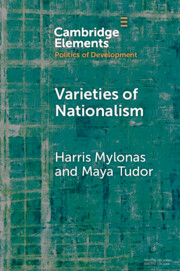
Varieties of Nationalism
- Communities, Narratives, Identities
-
- Published online:
- 04 July 2023
- Print publication:
- 03 August 2023
-
- Element
- Export citation
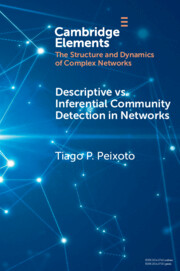
Descriptive vs. Inferential Community Detection in Networks
- Pitfalls, Myths and Half-Truths
-
- Published online:
- 04 July 2023
- Print publication:
- 31 August 2023
-
- Element
-
- You have access
- Open access
- HTML
- Export citation

Gauge Symmetries, Symmetry Breaking, and Gauge-Invariant Approaches
-
- Published online:
- 04 July 2023
- Print publication:
- 03 August 2023
-
- Element
- Export citation

Quantum Gravity in a Laboratory?
-
- Published online:
- 03 July 2023
- Print publication:
- 03 August 2023
-
- Element
- Export citation
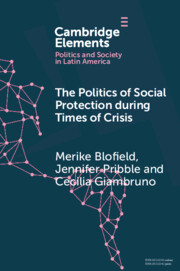
The Politics of Social Protection During Times of Crisis
-
- Published online:
- 03 July 2023
- Print publication:
- 03 August 2023
-
- Element
- Export citation
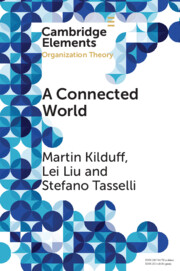
A Connected World
- Social Networks and Organizations
-
- Published online:
- 26 June 2023
- Print publication:
- 20 July 2023
-
- Element
- Export citation
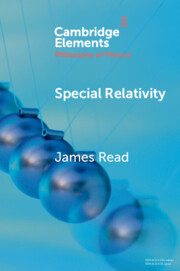
Special Relativity
-
- Published online:
- 26 June 2023
- Print publication:
- 20 July 2023
-
- Element
- Export citation

Monotheism and the Suffering of Animals in Nature
-
- Published online:
- 23 June 2023
- Print publication:
- 06 July 2023
-
- Element
- Export citation

Catharine Trotter Cockburn
-
- Published online:
- 23 June 2023
- Print publication:
- 13 July 2023
-
- Element
- Export citation
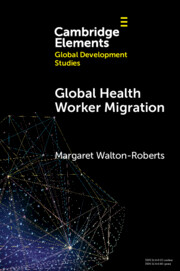
Global Health Worker Migration
- Problems and Solutions
-
- Published online:
- 23 June 2023
- Print publication:
- 13 July 2023
-
- Element
- Export citation
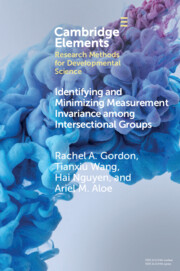
Identifying and Minimizing Measurement Invariance among Intersectional Groups
- The Alignment Method Applied to Multi-category Items
-
- Published online:
- 23 June 2023
- Print publication:
- 06 July 2023
-
- Element
- Export citation
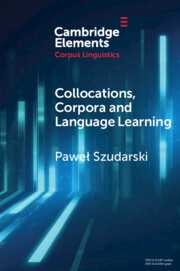
Collocations, Corpora and Language Learning
-
- Published online:
- 23 June 2023
- Print publication:
- 20 July 2023
-
- Element
- Export citation

Superorganism
- Toward a New Social Contract for Our Endangered Species
-
- Published online:
- 23 June 2023
- Print publication:
- 03 August 2023
-
- Element
- Export citation
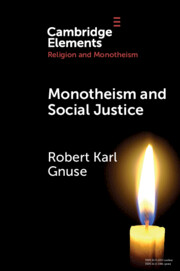
Monotheism and Social Justice
-
- Published online:
- 23 June 2023
- Print publication:
- 20 July 2023
-
- Element
- Export citation

Constructionist Approaches
- Past, Present, Future
-
- Published online:
- 22 June 2023
- Print publication:
- 20 July 2023
-
- Element
-
- You have access
- Open access
- HTML
- Export citation

Emma Rice's Feminist Acts of Love
-
- Published online:
- 19 June 2023
- Print publication:
- 13 July 2023
-
- Element
- Export citation
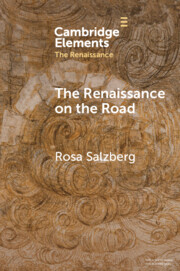
The Renaissance on the Road
- Mobility, Migration and Cultural Exchange
-
- Published online:
- 19 June 2023
- Print publication:
- 13 July 2023
-
- Element
- Export citation
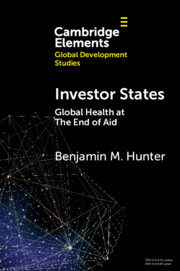
Investor States
- Global Health at The End of Aid
-
- Published online:
- 16 June 2023
- Print publication:
- 06 July 2023
-
- Element
- Export citation
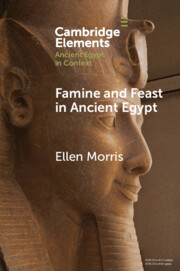
Famine and Feast in Ancient Egypt
-
- Published online:
- 16 June 2023
- Print publication:
- 06 July 2023
-
- Element
- Export citation

Toward a Criminology of Terrorism
-
- Published online:
- 16 June 2023
- Print publication:
- 20 July 2023
-
- Element
-
- You have access
- Open access
- HTML
- Export citation
